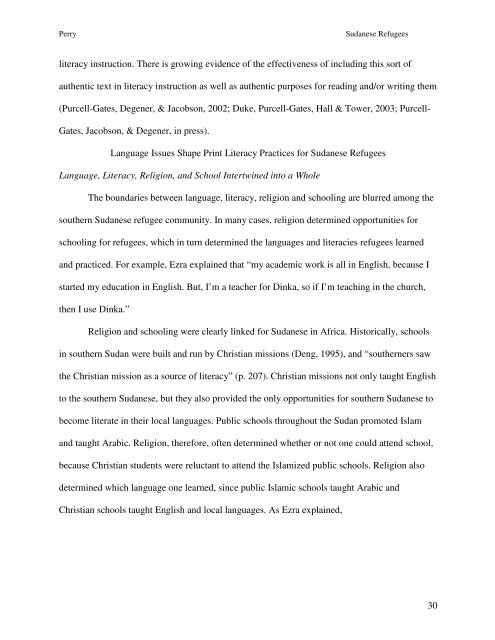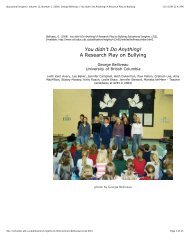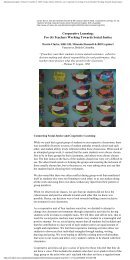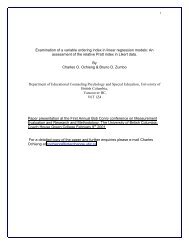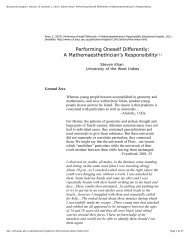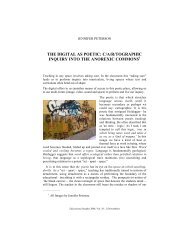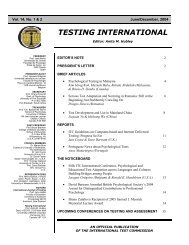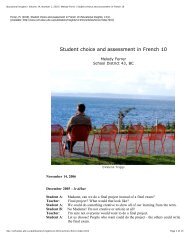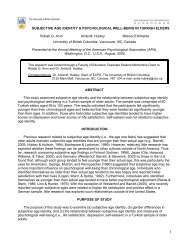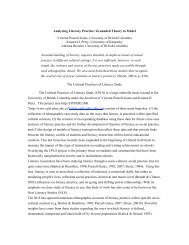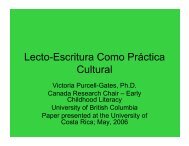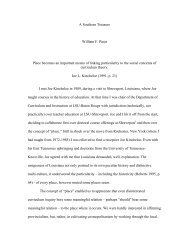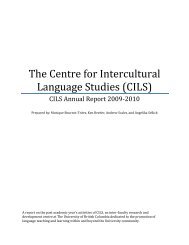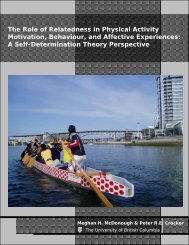Sharing Stories, Linking Lives: Literacy Practices Among ... - CPLS
Sharing Stories, Linking Lives: Literacy Practices Among ... - CPLS
Sharing Stories, Linking Lives: Literacy Practices Among ... - CPLS
Create successful ePaper yourself
Turn your PDF publications into a flip-book with our unique Google optimized e-Paper software.
Perry Sudanese Refugees<br />
literacy instruction. There is growing evidence of the effectiveness of including this sort of<br />
authentic text in literacy instruction as well as authentic purposes for reading and/or writing them<br />
(Purcell-Gates, Degener, & Jacobson, 2002; Duke, Purcell-Gates, Hall & Tower, 2003; Purcell-<br />
Gates, Jacobson, & Degener, in press).<br />
Language Issues Shape Print <strong>Literacy</strong> <strong>Practices</strong> for Sudanese Refugees<br />
Language, <strong>Literacy</strong>, Religion, and School Intertwined into a Whole<br />
The boundaries between language, literacy, religion and schooling are blurred among the<br />
southern Sudanese refugee community. In many cases, religion determined opportunities for<br />
schooling for refugees, which in turn determined the languages and literacies refugees learned<br />
and practiced. For example, Ezra explained that “my academic work is all in English, because I<br />
started my education in English. But, I’m a teacher for Dinka, so if I’m teaching in the church,<br />
then I use Dinka.”<br />
Religion and schooling were clearly linked for Sudanese in Africa. Historically, schools<br />
in southern Sudan were built and run by Christian missions (Deng, 1995), and “southerners saw<br />
the Christian mission as a source of literacy” (p. 207). Christian missions not only taught English<br />
to the southern Sudanese, but they also provided the only opportunities for southern Sudanese to<br />
become literate in their local languages. Public schools throughout the Sudan promoted Islam<br />
and taught Arabic. Religion, therefore, often determined whether or not one could attend school,<br />
because Christian students were reluctant to attend the Islamized public schools. Religion also<br />
determined which language one learned, since public Islamic schools taught Arabic and<br />
Christian schools taught English and local languages. As Ezra explained,<br />
30


